Are you considering a position reclassification within your organization? It's essential to navigate this process with clarity and understanding, ensuring that all parties are informed and aligned. This letter template serves as a guide for communicating the necessary changes, highlighting the new responsibilities and expectations. Dive into the details below to discover how to craft the perfect position reclassification notice!

Job Title and Current Classification
Position reclassification notices typically involve details about the job title and current classification of the role in question. For instance, a role titled "Senior Database Administrator" classified under "Level 3 Technical Management" may undergo evaluation for reassignment to "Lead Database Architect" under a "Level 4 Technical Management" classification. Changes often reflect organizational restructuring, evolving responsibilities, or enhanced skill requirements. This process requires clear communication of job functions, responsibilities, necessary skills, and anticipated outcomes of the reclassification to ensure alignment with organizational goals.
Effective Date of Reclassification
Effective immediately, the reclassification notice for the position of Financial Analyst at XYZ Corporation, located in San Francisco, California, has been enacted. The revised job title now reflects the increased responsibilities, with a transition from the previous salary grade of 9 to the new salary grade of 11, which includes updated compensation reflecting industry standards. This change, taking effect on October 31, 2023, aligns with organizational growth and the need for advanced analytical skills. Key performance indicators, performance evaluation criteria, and job specifications revised during the annual review contribute to this reclassification, enhancing overall departmental efficiency and employee engagement.
Rationale and Reasoning for Reclassification
Position reclassification involves evaluating and adjusting the classification of a job based on its responsibilities, required skills, and market standards. This process often emerges from changes in organizational structure, job responsibilities, or industry benchmarks. Thorough analysis reveals discrepancies between job duties and classification, necessitating adjustments to align with current standards. For example, a project manager's role may evolve from managing projects to overseeing complex, multimillion-dollar initiatives involving cross-functional teams, directly influencing revenue generation. Compensation adjustments may also be warranted based on market comparisons, ensuring that salaries reflect increased responsibilities and industry norms. Clear documentation and transparent communication enhance understanding and acceptance of changes among stakeholders.
New Responsibilities and Expectations
Position reclassifications often arise from changes in job responsibilities and organizational needs within companies. Employees may assume new tasks or projects that require a higher skill set or greater accountability, prompting a review of their job classification. This process typically includes a detailed assessment of the new role, analyzing specific responsibilities, expected outcomes, and alignment with industry standards. Employers often generate formal notifications outlining these changes to ensure clarity in role expectations and potential compensation adjustments. Providing a clear overview of the new responsibilities helps employees understand their evolving contributions to the organization, fostering transparency and alignment with career development goals.
Impact on Salary and Benefits
Position reclassification can significantly influence salary structures and benefits eligibility within organizations. For example, a transition from a non-exempt position under the Fair Labor Standards Act (FLSA) to an exempt status may lead to changes in overtime compensation, which can affect annual income. Additionally, a higher classification level often results in an increase in base salary; for instance, a promotion from a Level II to Level III position may provide a 10-15% salary boost. Benefits such as retirement contributions, health insurance options, and educational assistance programs may also shift, reflecting the new position's responsibilities. Understanding these impacts is crucial for employees as they navigate potential changes while considering long-term career goals.

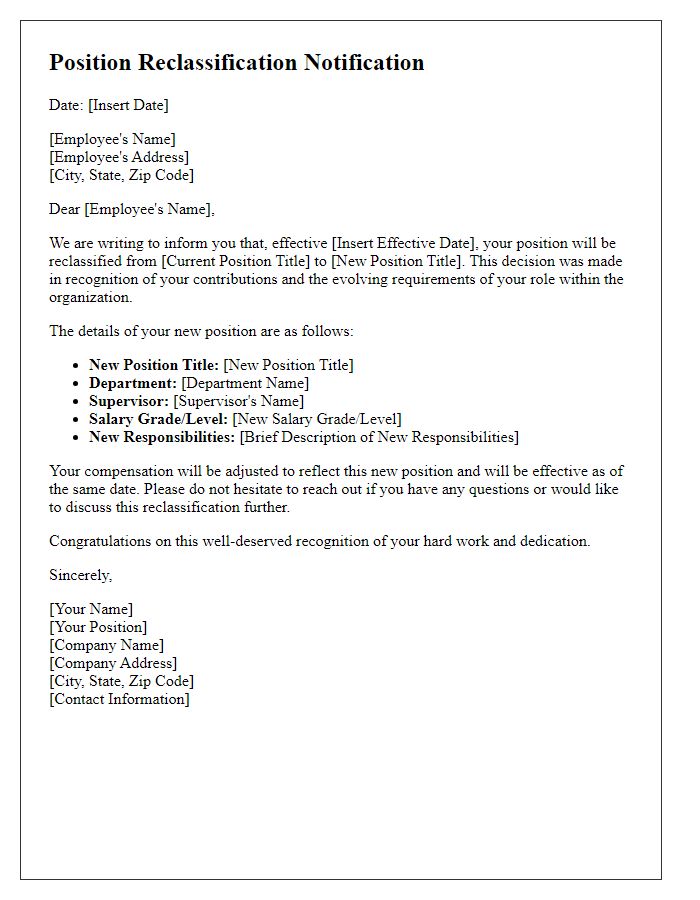
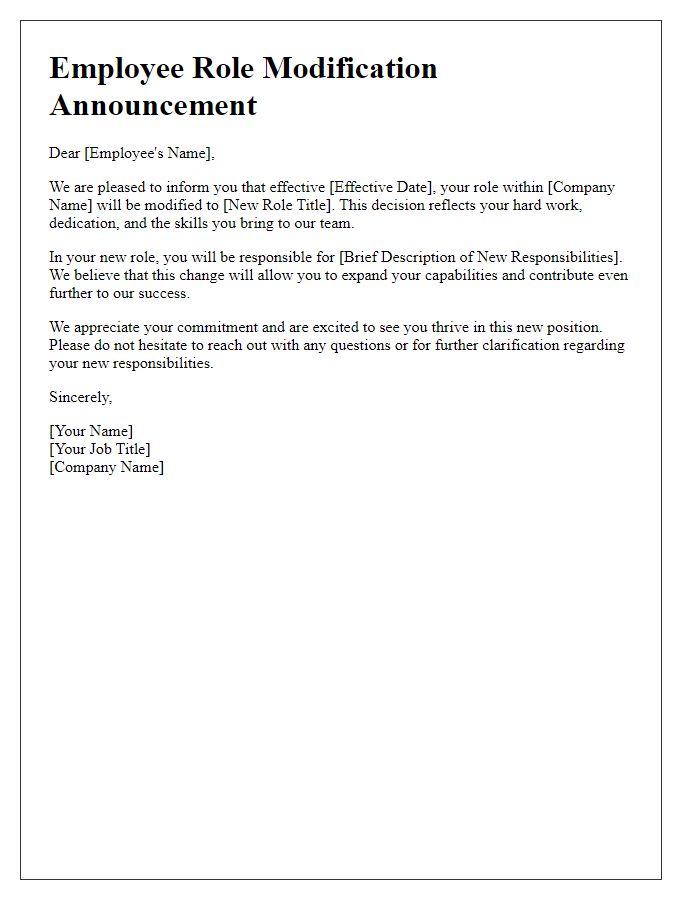
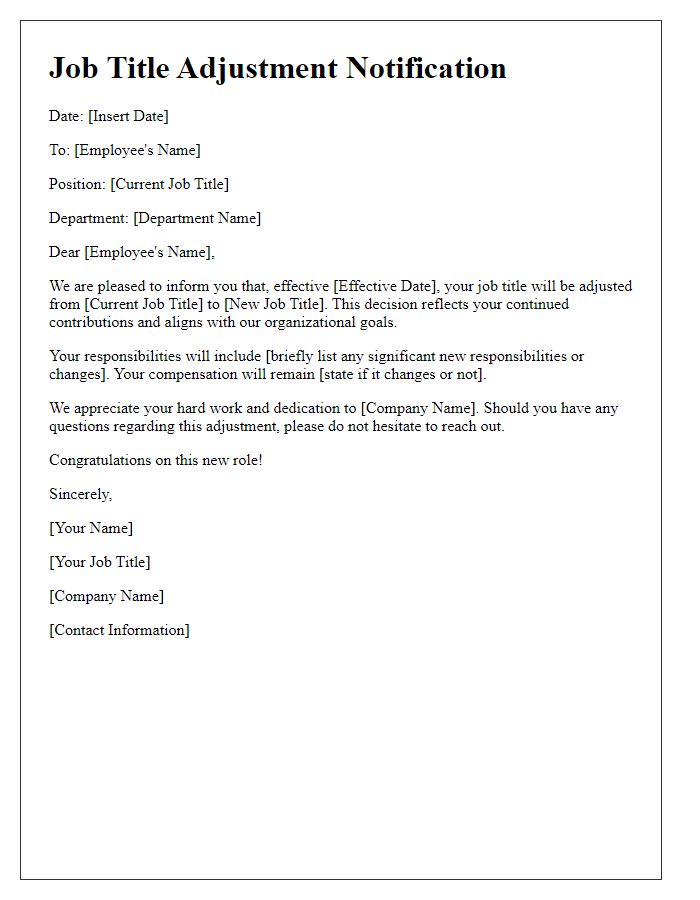
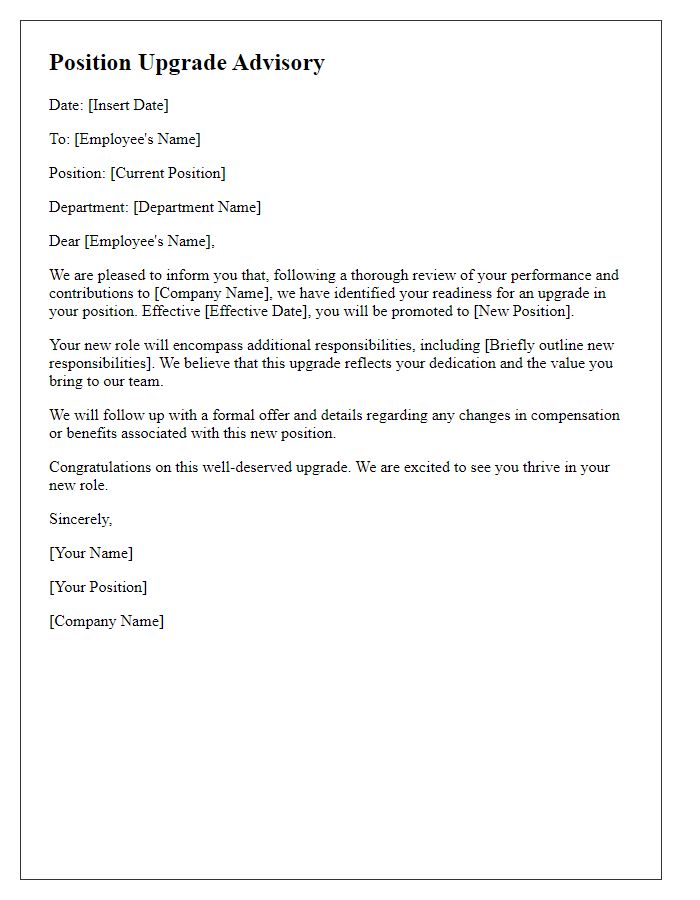
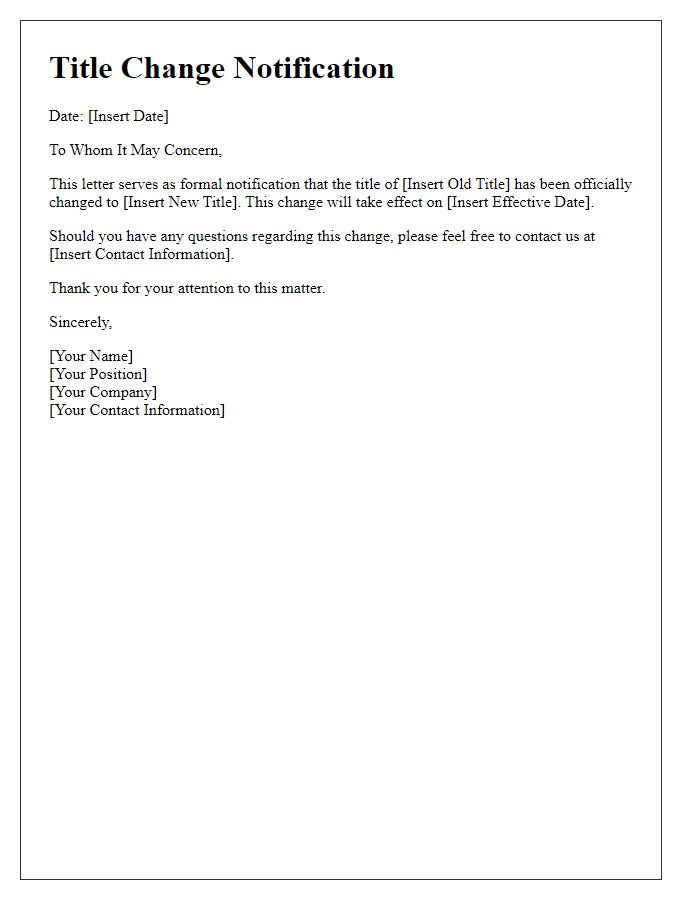
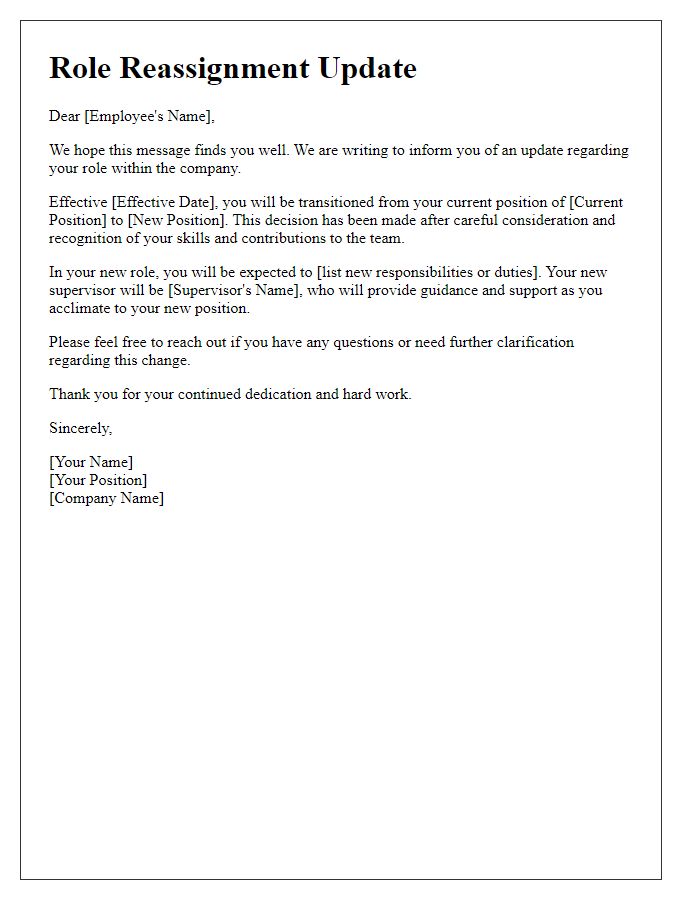
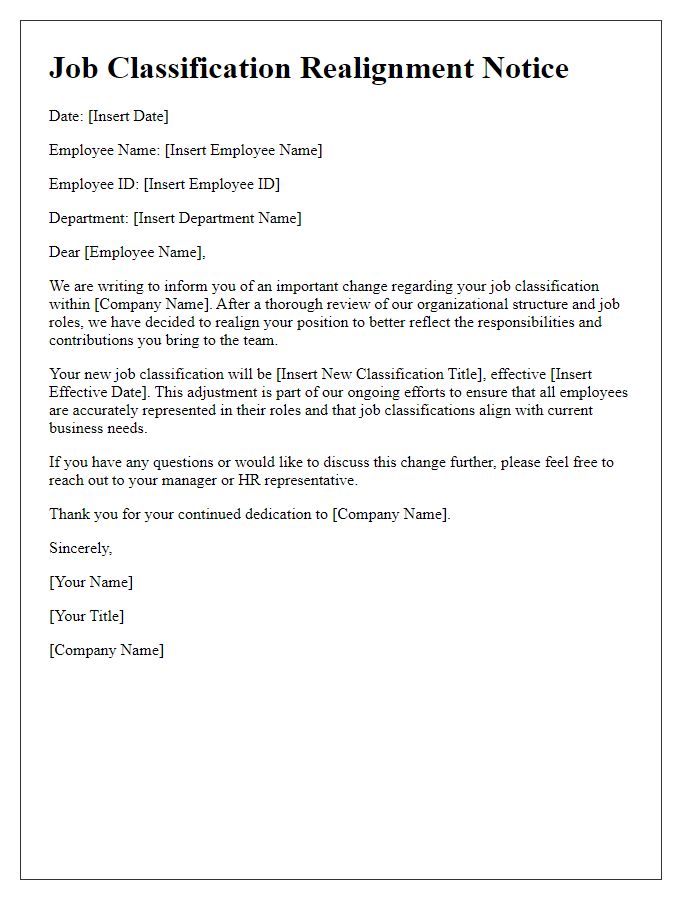
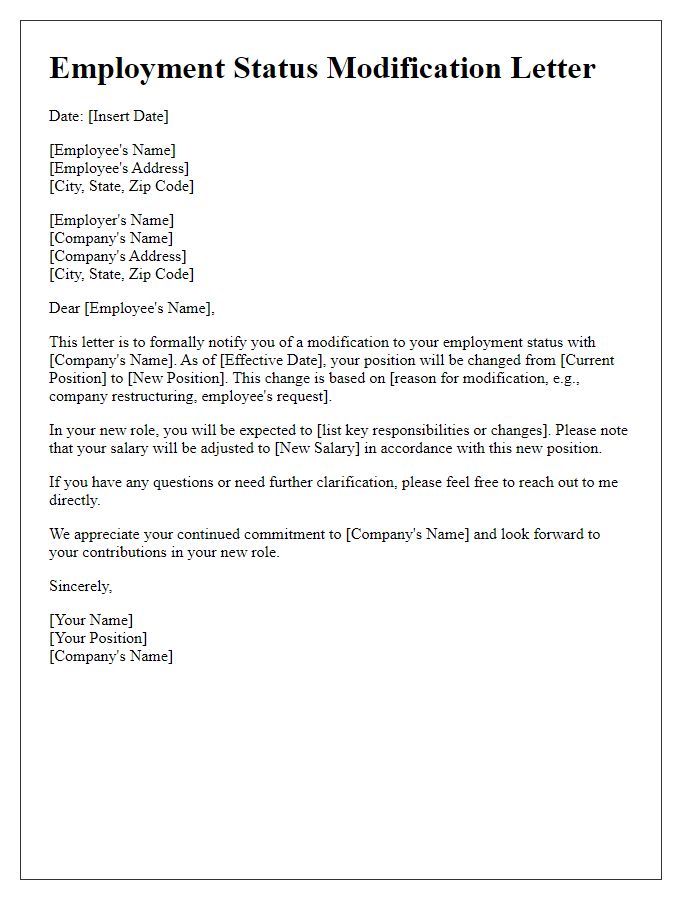
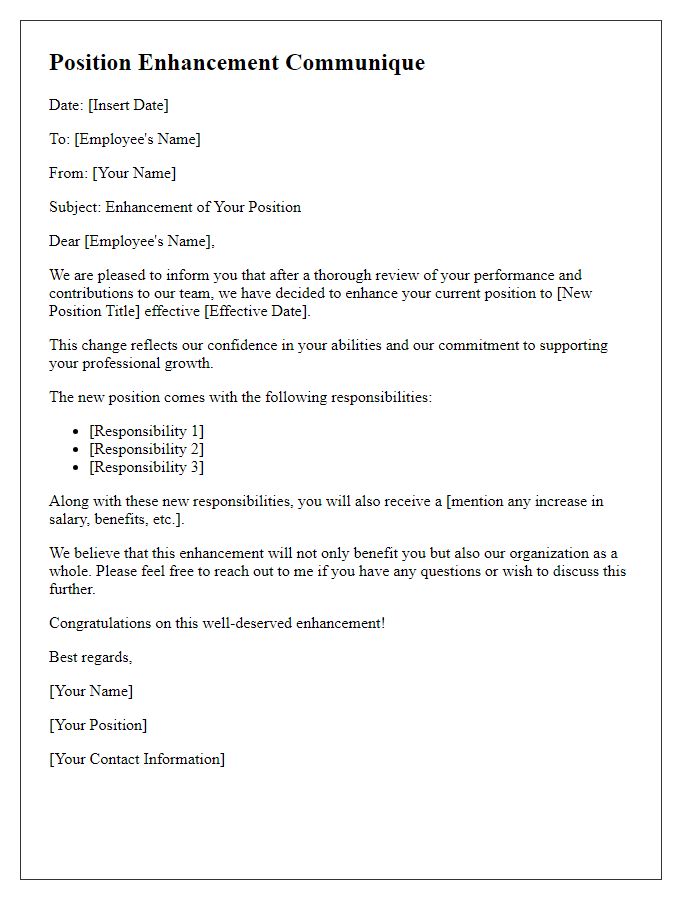
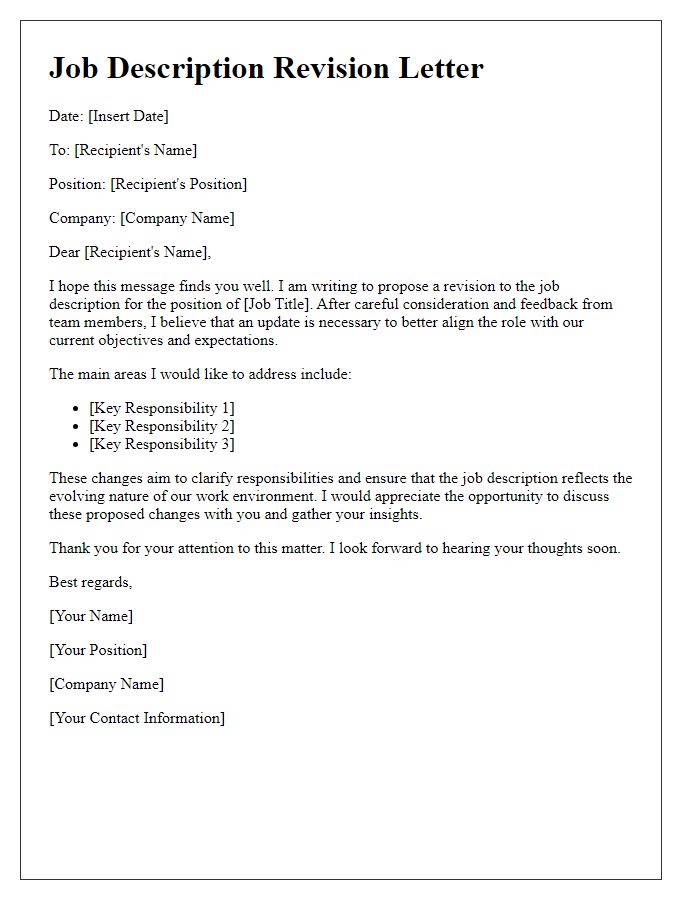


Comments